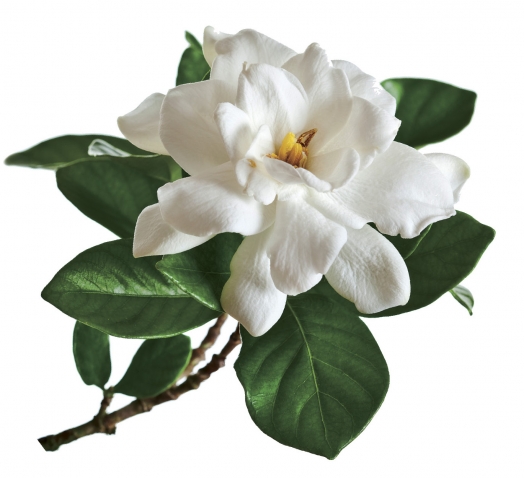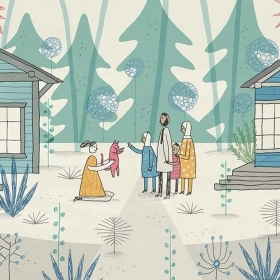When my mom was 26, she married my dad, tore the ligaments in her ankle, buried her father, miscarried, and bought a farm in rural Kentucky. Clearing the land themselves, she and my dad built a house and a barn. My mom started a boarding business for horses with special needs.
Down the road lived an interior decorator who had collected hundreds of rare daylilies which she planted in the shape of two giant horseshoes. Moving a lawn chair between the curved gardens, she spent her weekends admiring them. When my parents moved in, she started splitting her bulbs so Mom could have her own daylily collection.
Two years later, I arrived. I slept in the barn as my mom changed bandages and settled foaling mares. When I was 3, Dad wanted to move into town. Mom was aghast. Owning a farm meant stability, stewardship, security. But up went the sale sign. Mom was only just beginning to understand the extent to which Dad would stew, then announce decisions none of us would be able to oppose.
The interior decorator rounded out Mom’s floral inventory right as the farm sold. Mom picked 40 daylily varieties and one horse to take with her. We didn’t have room for much more.
In town, Mom convinced a miniature-horse breeder to board Tego, the bay she kept. The breeder’s wife was, conveniently, a daylily dealer. Mom supplied Lunette Dearen splits of the 40 varieties at no charge, and Joe Dearen bent his rules about the kinds of horses he had at his place.
Of course, the small horses and fields offended Tego, a bullheaded, 16.2-hand saddlebred. Nightly, he split the fence rails until they were low enough to jump, then ran the railroad tracks of our new ZIP code. When the early-morning traffic reports crackled, off my mom would go, to talk Tego into sticking around. I would lie under the sheets and think of her, panicked and proud, finding her best friend in the dark, murmuring to him about freedom, about compromise.
We left the town in a rush, just as we did when we left the farm. Tego had died by then, and our house’s buyers wrote into the contract that the landscaping could not be disrupted. Mom was not allowed to split her daylilies and take them with her. I was 18, headed to Wellesley, and not putting up with garbage.
“That lady is planning to replace the wainscoting with mirrors,” I said. “You can’t slip a few daylilies past her?”
Mom dug up half a dozen bulbs.
Those flowers came with us through two more moves, and then, after 38 years of marriage, my dad filed for divorce.
“You’ll get the house,” he said, showing Mom his calculations. “I’ll do the maintenance, and down the road, when you sell, we’ll split the profit.”
Mom went to the storage room to divide the family albums and, lost among her options and constraints, fell and shattered her wrist.
Mom’s coworker—a Wellesley alum—came over to change my mom’s sheets. Allison surveyed the house and itemized the upcoming maintenance. She explained each task. “You don’t need your husband,” she said. “I’ll help you.”
That night, my mom told my dad that actually, she might not want the house. Giving up a plot of land went against her principles, but she had remembered she was capable. Never waste your capability on something that doesn’t make you feel alive.
“We have to figure out where she’s gonna live,” I told my brothers. I was in L.A., three months from getting married.
“She can’t afford to buy,” my youngest brother said. He had just started a new job in D.C.
“I’ll help her look at rentals,” the middle one sighed. Just separated from his wife, he was the only one left in Kentucky.
As we scrolled through apartments in my mom’s price range—carpeted basements, studios in Indiana, garages with creepy landlords—my friends from Wellesley were sending her stacks of encouraging letters. My former coworkers from El Table sent her a potted gardenia. Mom cried with gratitude and worry.
“What if I kill it?” she said. She had never been good with houseplants.
But at my wedding, the gardenia was blooming. Soon after, she found a rental log cabin on a farm, a few minutes from the land she’d cleared with my dad. Our old neighbor Kathy scrubbed the cupboards, and Mom purged her belongings down to what she could easily move again. The daylilies stayed behind. The gardenia, still blooming, came.
I visited my mom in the late summer, when the grass was starting to brown and the sky glowed long enough to set the pond on fire. We crossed the back fields to the woods, where we’d heard there was a trail. With some searching, we found it—and a creek, then a waterfall. The land wasn’t ours, but we taught ourselves about it anyway. Back at the cabin, a gardenia was growing in the kitchen, impossibly strong, defying the odds.
Kate Erickson ’05 is a TV writer based in Los Angeles, where she has written for Copper (BBC America), Mr. Robot (USA), and Fear the Walking Dead (AMC). She can be found on Twitter at @katefromky.







